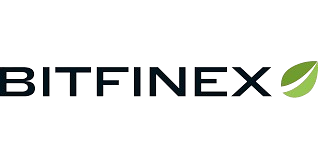Summary
Cryptocurrency is legal in Hungary, with a regulatory framework in place. The Magyar Nemzeti Bank (MNB) oversees crypto activities. Popular payment methods include bank transfers and credit cards. Many exchanges support trading in Hungarian Forint (HUF). Key laws include AML/CFT regulations and tax reporting requirements. Here are the best crypto exchanges for Hungarian users:
Best Crypto Exchanges in Hungary
When selecting a crypto exchange in Hungary, it’s crucial to consider factors such as supported cryptocurrencies, trading fees, deposit methods, and regulatory compliance. Hungarian users benefit from platforms that offer local currency support (HUF) and preferred payment methods like bank transfers and credit cards. Let’s examine the top exchanges available to Hungarian crypto enthusiasts:
1. OKX
2. Binance
3. Bitfinex
4. Uphold
5. Kraken
Is Crypto Legal and Regulated in Hungary?
Cryptocurrency is legal in Hungary, but it operates within a regulatory framework. The Magyar Nemzeti Bank (MNB), Hungary’s central bank, oversees crypto activities and has issued guidelines for market participants. In 2022, Hungary introduced legislation to align with EU regulations, including the Markets in Crypto-Assets (MiCA) framework.
The Hungarian Financial Supervisory Authority (HFSA), merged with the MNB, monitors crypto exchanges and service providers. These entities must register with the MNB and comply with Anti-Money Laundering (AML) and Combating the Financing of Terrorism (CFT) regulations.
Hungary’s National Tax and Customs Administration classifies cryptocurrencies as “other assets” for tax purposes. While crypto trading is legal, the government requires exchanges to implement Know Your Customer (KYC) procedures and report suspicious transactions to authorities.
Is Crypto Taxable in Hungary?
Cryptocurrency is subject to taxation in Hungary, with specific regulations in place. The Hungarian tax authorities consider crypto gains as “other income” and apply relevant tax rates. As of 2024, the personal income tax rate on crypto gains is 15%, which is applied to the profit made from selling or exchanging cryptocurrencies.
Capital gains from crypto transactions are taxable events. If an individual’s annual crypto income exceeds 600,000 HUF (approximately 1,600 EUR), they are required to pay an additional 13% social contribution tax on the amount exceeding this threshold.
Mining income is also taxable and may be subject to both personal income tax and social contribution tax. Crypto-to-crypto transactions are considered taxable events, and individuals must calculate the gain or loss based on the fair market value of the cryptocurrencies at the time of the transaction.
Disclaimer:
Tax laws are subject to change, and individual circumstances may vary. It is strongly advised to consult with a qualified tax professional or financial advisor for personalized guidance on cryptocurrency taxation in Hungary.
How to Buy Crypto in Hungary
Purchasing cryptocurrency in Hungary has become increasingly accessible. We recommend using OKX for its extensive selection of cryptocurrencies and competitive fees. Whether you’re interested in buying Bitcoin, Ethereum, or other digital assets, follow these steps to start your crypto journey:
- Pick a Crypto Exchange: Opt for a trusted platform, such as OKX, that caters to Hungarian users. Make sure the exchange supports your payment options and adheres to local KYC regulations.
- Register and Complete Verification: Sign up on the selected exchange and finish the KYC verification process by submitting the required identification documents to comply with Hungary’s regulations.
- Fund Your Account: Deposit Hungarian Forint (HUF) into your exchange account. Popular funding methods in Hungary include SEPA bank transfers, credit/debit cards, and local solutions like SimplePay.
- Choose Your Cryptocurrency: Select the crypto you want to invest in. Common choices include Bitcoin (BTC), Ethereum (ETH), or stablecoins such as Tether (USDT) and USD Coin (USDC).
- Execute the Trade: Place a market or limit order to purchase your chosen cryptocurrency. Always double-check transaction fees and details before finalizing the trade.
- Secure Your Crypto: After buying, decide whether to store your assets on the exchange or move them to a personal wallet for better security.
By following these guidelines, residents of Hungary can securely and effectively start their cryptocurrency investment journey while staying compliant with local regulations.
Best Crypto Wallets in Hungary
Selecting a secure crypto wallet is crucial for Hungarian users to safeguard their digital assets. Here are some top wallet options available:
- Ledger: As a top provider of hardware wallets, Ledger offers secure offline storage with devices like the Nano X and Nano S Plus, protecting a wide range of cryptocurrencies from online threats.
- Trezor: Another well-known hardware wallet maker, Trezor offers models such as the Trezor One and Trezor Model T. These wallets support many cryptocurrencies and easily integrate with various platforms.
- Trust Wallet: A widely-used mobile wallet that supports multiple blockchains, Trust Wallet features a simple interface and a built-in DApp browser, making it ideal for both beginners and seasoned crypto users.
- Exodus: A user-friendly wallet available on both desktop and mobile, Exodus is known for its sleek design and integrated exchange feature. It supports numerous cryptocurrencies and includes a portfolio tracker for easy monitoring.
- MetaMask: A versatile browser extension and mobile wallet, primarily used for Ethereum and ERC-20 tokens. It’s essential for engaging with decentralized applications (DApps) and decentralized finance (DeFi) platforms.
When selecting a wallet, think about factors like security, supported assets, and ease of use. For maximum security, hardware wallets like Ledger and Trezor are best for long-term storage. On the other hand, software wallets such as Trust Wallet and MetaMask provide convenience for frequent transactions and interacting with DApps. Always ensure you download wallets from trusted sources and practice proper key management and backup protocols.
Bottom Line
For Hungarian crypto enthusiasts seeking the best crypto exchanges in Hungary, we recommend OKX as the top choice, offering a wide range of assets and competitive fees. Binance follows closely as a solid alternative, providing high liquidity and diverse trading options. Both platforms support HUF transactions and comply with local regulations, ensuring a secure and efficient crypto trading experience for Hungarian users.







